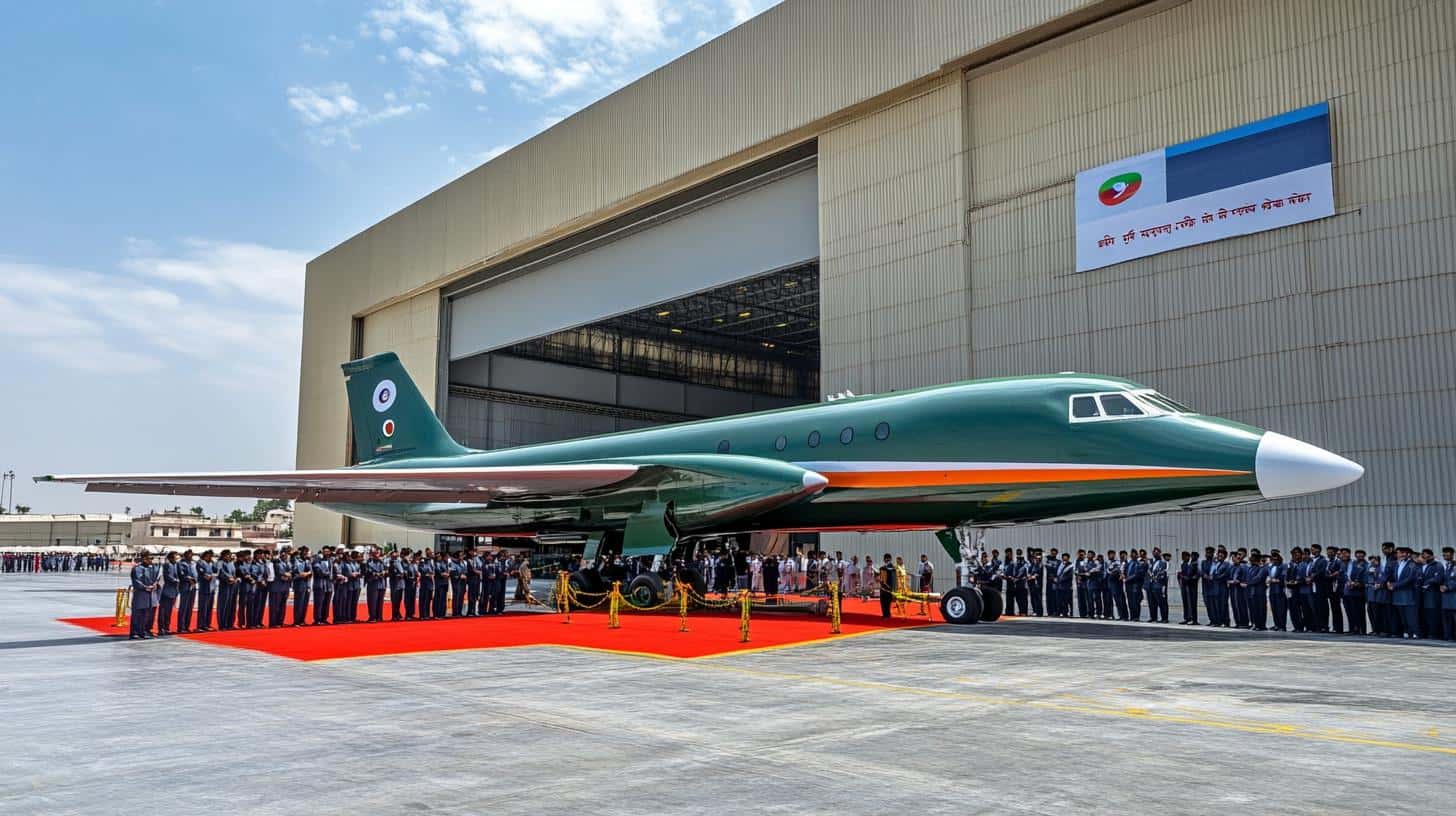In a landmark event, India and Spain have joined forces to establish the nation’s inaugural private military aircraft plant. Located in Gujarat, this pioneering facility aims to produce the Airbus C-295 transport aircraft, marking a significant milestone in India’s defense manufacturing landscape.
Historic Diplomatic Engagement
The ceremony saw Indian Prime Minister Narendra Modi and Spanish leader Pedro Sanchez attend the grand opening in Vadodara. The duo was greeted with an elaborate flower-studded parade, highlighting the significance of this partnership for both nations. This visit marks Sanchez’s first journey to India as Spain’s Prime Minister in nearly two decades.
Strengthening Bilateral Ties
India’s defense ministry has entered into a substantial $2.5 billion agreement with Airbus Defence and Space to procure 56 C-295 aircraft. With 16 jets already set for assembly in Spain, the remaining 40 will be built locally in India by 2026. This move is not just about manufacturing—it reaffirms India’s emergence as a global player in aerospace.
A Vision Realized
Acknowledging the project’s fruition, Tata Group’s chairman, Natarajan Chandrasekaran, commended the initiative as a testament to India’s burgeoning defense capabilities, attributing its inception to visionary leader Ratan Tata.
Expanding Economic Horizons
Besides the aerospace collaboration, Spain’s involvement in India is expanding across various sectors, reflecting its status as a significant foreign investor. Economic exchanges are thriving, with bilateral trade reaching $9.9 billion.
Sanchez is scheduled for further engagements in Mumbai to explore cooperative opportunities in entertainment and beyond, reinforcing the strengthening ties between the two countries.
India and Spain’s Aerospace Collaboration: The Unseen Impacts
The recent inauguration of a private military aircraft plant in Gujarat marks a new era for Indo-Spanish relations beyond just defense. With India and Spain collaborating to produce the Airbus C-295, this venture offers a range of unexplored impacts on local communities, economic landscapes, and international dynamics. Let’s delve into some interesting facets and potential controversies surrounding this collaboration.
Implications for Local Communities
The establishment of the aircraft manufacturing plant is set to transform Gujarat into a hub for aerospace production. Local employment opportunities will likely increase, from skilled engineering positions to roles in assembly, logistics, and management. This development is expected to stimulate economic growth in the region, boosting related industries such as transportation and infrastructure. However, there are concerns about whether the local workforce has the necessary skills and how the plant might impact the environment.
Global Economic Dynamics
As India steps onto the global stage as a defense manufacturing powerhouse, it challenges existing players in the aerospace industry. The move indicates a strategic shift in global defense alliances, potentially affecting defense procurement practices worldwide. On one hand, this strengthens India’s self-reliance in defense production, lessening dependence on traditional exporters like the United States and Russia. On the other hand, it raises questions about how these power shifts might affect geopolitical stability, particularly in the South Asian region.
Technological Innovations and Transfer
The partnership is not merely about building aircraft; it is a vehicle for technology transfer. This transfer can accelerate advancements in India’s aerospace capabilities, with potential spillover effects into commercial aviation and other technological domains. While this promises future advancements and innovations, it highlights the issue of intellectual property and technology control. How much of the high-level technology and expertise might actually transfer remains a point of contention.
Balancing Bilateral Trade Interests
With India’s growing emphasis on indigenous defense production, this plant becomes a bellwether for future bilateral trade agreements. While beneficial for Spain as it secures a foothold in a new market, questions arise regarding the balance of trade. Could the increased focus on defense overshadow other areas of economic cooperation? And how might this affect Spain’s trade relations with other countries?
Controversies and Critiques
Critics argue that massive defense deals like these might divert resources from crucial social programs. Moreover, peace advocates voice concerns that bolstering defense manufacturing could exacerbate regional tensions. What are the ethical implications of investing heavily in military capabilities during times of economic uncertainty?
The Broader Picture
As Spain and India deepen their partnership, inquiries emerge about the larger implications for global diplomacy and international trade. Such collaborations exemplify how nations are increasingly moving beyond traditional alliances to forge new economic and defense ties. How will these evolving alliances shape the future of international relations?
For those interested in broader discussions about global trade and international relations, visit World Trade Organization and OECD for more insights.







